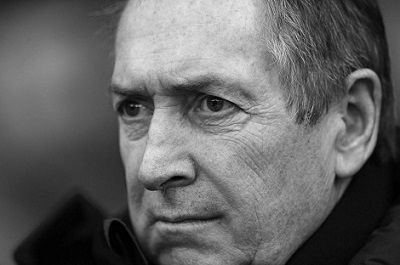Dave Woodhall talks about Gerard Houllier’s time at Villa Park.
In hindsight, Gerard Houllier’s spell as Villa manager during the 2010-11 season was always likely to end in disappointment. He came in to replace Martin O’Neill, whose shock departure had put the club onto the back foot, a position they took years to recover from. O’Neill had been a massively popular figure and, as we’ve seen many times, anyone coming in after a folk hero is always going to have a hard job winning over the supporters.
The manner of Houllier’s arrival was also somewhat controversial. The search for a new manager had taken several weeks and shown that the people in charge at Villa lacked any sort of contingency planning. He also seemed in no great hurry to take up his role, after previously being employed by the French FA, and on arriving he make the first in a series of PR gaffes when stating that he’d always seen Villa as “an eighth- to twelfth placed club.” Such a statement was never going to endear Houllier to a fanbase who thought such mid-table mediocrity had been left long behind.
Results were mixed, although this was at least in part due to an injury list so extensive that out of contract Robert Piers was drafted in as an emergency short-term signing. The highlight of the early part of the season saw a patched-up and youthful Villa side going into a two-goal lead at home to Manchester United before conceding a late equaliser. The side were at least trying to play some attractive football at this point, although Houllier’s return to Anfield, the scene of his earlier heart problems, was criticised for what was seen as an overly-generous attitude towards his former employers. A three-nil defeats hardly helped matters.
Villa were slipping were slipping into relegation trouble when a club record fee was splashed out on England striker Darren Bent amongst other January deals. Bent scored the only goal on his debut against Manchester City, and as the injurie improved so did the club’s form.
There was, though, further controversy when a weakened Villa side lost to City in the FA Cup. There were also stories about arguments off the field, including an unsavoury incident involving senior players and members of the club’s coaching staff.
Fourteen points from the final eight games of the season provided hope for the future as well as an unlikely ninth place in the table. However, by this time the side was being managed temporarily by Houllier’s assistant Garry MacAllister, as the Frenchman had been forced to rest after a further heart problem. It was no surprise when he stepped down as Villa manager a few days after the end of the season.
Villa have yet to better that ninth-placed finish ever since. Finishing tenth in 2020-21 will generally seen as a successful season. He had his detractors, and some of the things he said and did were undoubtedly tactless, to put it mildly. But while he did himself no favours, perhaps Houllier told us things that we didn’t want to hear. Villa had got a bit complacent under Martin O’Neill – the spending seemed as though it was going to go on forever and while a consistent sixth place was more than we’d known for decades the top end of the league was slowly getting further out of reach. Houllier introduced a fitness routine that some players found hard to cope with, and while the immediate result was that lengthy injury list, the team also ended the season better than any Villa side for many years.
At the time it seemed that he was fixing on the long-term to the detriment of what was happening at the time; certainly results improved once the side switched to a more practical style of lay under McAllister. What might have happened had he been able to stay is open to conjecture – the players he brought in during his one transfer window were a mixture of successful, successful elsewhere later and disappeared without getting much of a chance. But I do know that the time when Gerard Houllier was in charge as one of the few periods this century when I’ve felt that the Villa manager has had a plan that focussed on longer than the end of the season.
